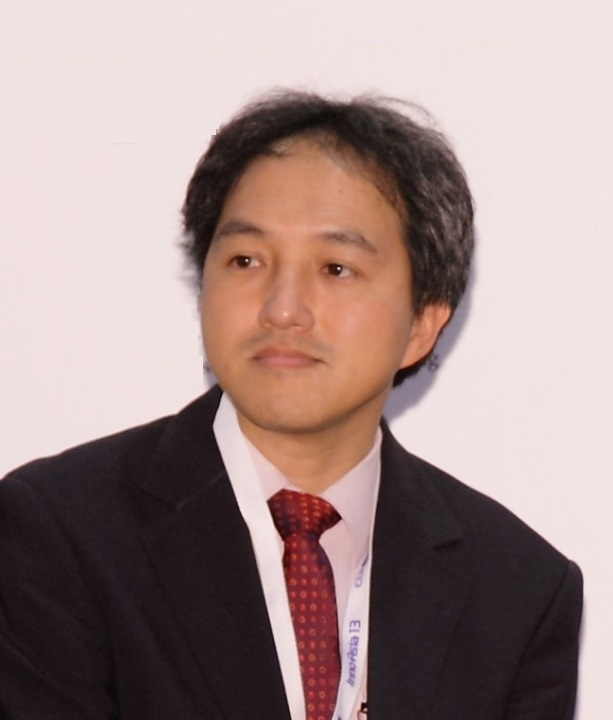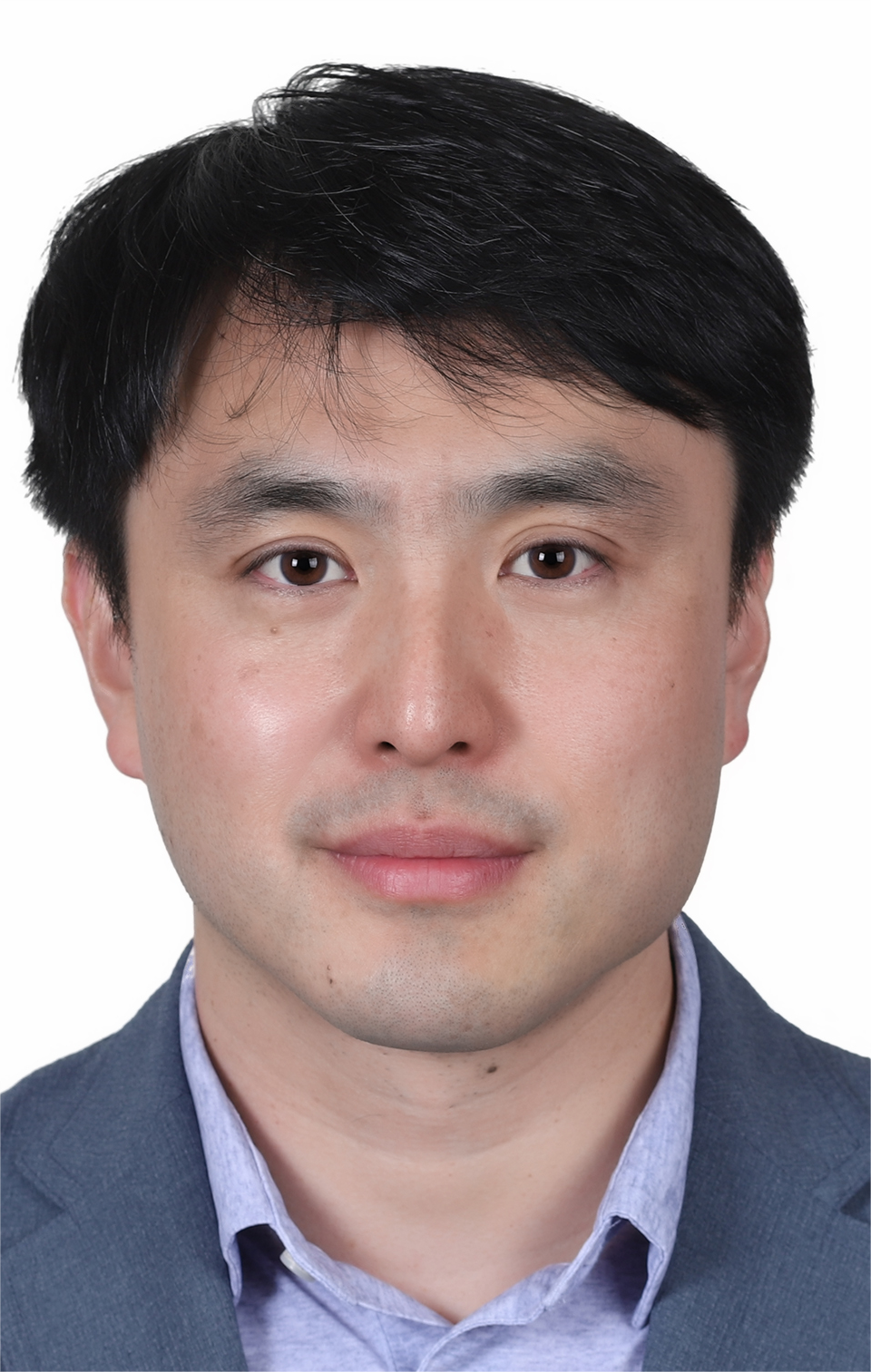Keynote Speaker I

Prof. Eric Cheng
IEEE Fellow, Director
Power Electronics Research Center, Department of Electrical and Electronic Engineering, The Hong Kong Polytechnic University
Biography: Prof Eric Cheng is a highly accomplished electrical engineer, having earned his BSc and PhD from the University of Bath in 1987 and 1990, respectively. Prior to joining the Hong Kong Polytechnic University in 1997, he held the position of Principal Engineer at Lucas Aerospace in the United Kingdom, where he led several power electronics projects. Prof Cheng is widely recognized for his significant contributions to the development of electric vehicles in Hong Kong. He is affectionately known as the "father of Electric Vehicle" in Hong Kong, having served as the electrical designer for the city's first commercial electric vehicle and led his team in designing the first charging network. His expertise in electrical engineering, energy, and automotive has earned him numerous awards, including the Seoul International Invention Fair 2015 Gold prize for his contributions to super-capacitors for electric vehicles, the 2016 iCAN Gold Medal for his work on active suspension, and the Gold Award of Hong Kong Innovation and Technology in 2017. Additionally, he received the Geneva's Invention Expo Silver Award for his work on the antilock braking system, the top 20 Tera Award in 2021, and the Innovation Award of the TechConnect 2023 for his contributions to the development of an Ammonia Powered Fuel Cell-based Electric Vehicle. Prof Cheng is an accomplished writer and has published over 500 papers and 7 books, as well as given over 200 interviews with the media on his research and development. He currently serves as the director of the Power Electronics Research Centre at Hong Kong Polytechnic University, where his research interests encompass all aspects of Power electronics, Power Quality, Renewable Energy, Motor Drives, Energy Storage, Energy Saving, Power Distribution, EMI, High-Speed Rail, Electric Vessel, Electric vehicles, and advanced Automotive components.
Prof Cheng is a chartered engineer and a fellow of the Institute of Electrical and Electronics Engineers (IEEE), the Hong Kong Institution of Engineers (HKIE), and the Institution of Engineering and Technology (IET). His outstanding contributions to the field of electrical engineering have earned him a well-deserved reputation as one of the leading experts in the field.
Speech Title: Future Energy Storage For Electric Vehicles: Battery, Hydrogen, Ammonia or others
Abstract: The electric vehicle is one of the most significant technological developments of this century, driven in part by the goal of achieving carbon neutrality by 2050. However, energy storage and fuel remain major concerns for future development. While Li-ion batteries are currently the most common energy storage solution for electric vehicles, they suffer from recycling and carbon footprint issues. Hydrogen fuel shows promise, but numerous challenges must be addressed, including production, transportation, and safety concerns. Metal-oxide fuel cells are a promising alternative energy storage solution. Recently, the ammonia-powered electric vehicle has gained attention due to its potential low cost and operation under low pressure.
Power electronics form the backbone of vehicle technology, encompassing critical components such as power circuits, motor drives, chargers, and power distribution systems. In this presentation, we will explore various energy storage solutions, power conversion techniques, and fuel power processing technologies. Specifically, we will focus on our recent developments in ammonia-powered electric vehicles, which offer advanced features and zero emissions compared to hydrogen-based electric vehicles. The talk will discuss the basic technique of the ammonia power and its vehicle application.
Keynote Speaker II

Assoc. Prof. Chen Lv
School of Mechanical and Aerospace Engineering, Nanyang Technological University
Biography: Chen Lv is a Nanyang Associate Professor at School of Mechanical and Aerospace Engineering, and the Cluster Director in Future Mobility Solutions, Nanyang Technological University, Singapore. He received his PhD degree at Department of Automotive Engineering, Tsinghua University in 2016, with a joint PhD at EECS Department, University of California, Berkeley. He was a Research Fellow at Cranfield University, UK during 2016-2018. He joined NTU and founded the Automated Driving and Human-Machine System (AutoMan) Research Lab since June 2018. His research focuses on intelligent vehicles, automated driving, and human-machine systems, where he has published 4 books, over 100 papers, and obtained 12 granted patents. He serves as Associate Editor for IEEE Transactions on Intelligent Transportation Systems, IEEE Transactions on Vehicular Technology, IEEE Transactions on Intelligent Vehicles, etc. He received many awards and honors, selectively including IEEE IV Best Workshop/Special Session Paper Award (2018), Automotive Innovation Best Paper Award (2020), Winner of Waymo Open Dataset Challenges at CVPR (2021, 2022), Winner of IEEE VTS Motor Vehicles Challenge (2022), Nanyang Research Award (Young Investigator) (2022), Most Innovative Award of NeurIPS Driving SMARTS Competition (2022), and SAE Ralph R. Teetor Educational Award (2023).
Speech Title: Human-Machine Hybrid Intelligence for Future Mobility
Abstract: The long-term goal of artificial intelligence (AI) systems is to make them learn, think and act smartly like human beings. As a typical application of AI, autonomous vehicles (AVs) become one of the most potential and ultimate ambitions in the smart mobilities. They primarily designed to replace human drivers during driving in order to enhance the performance and avoid the possible fatalities. In the near future, AVs are believed to share public roads with human-driven vehicles, which requires AVs to be smart and able to behave like human drivers, being reasonable and predictable to other road users. However, due to their limited smartness, current AVs are still lack of robust situation understanding, interaction prediction and human-like decision-making abilities when interacting with others, particularly in complex and emergency situations. Therefore, human-machine hybrid intelligence, as well as human-machine collaboration, are of great importance to ensure the safety and further improve the smartness of mobility systems, during long-term development and large-scale deployment of AVs. In this talk, the recent studies in human-like autonomy and human-machine hybrid intelligence for future mobility will be presented. First, a data-driven prediction and decision-making framework for human-like autonomous driving will be introduced. Next, a novel human-machine collaboration framework with bi-directional performance augmentation ability developed for automated vehicles and robotics will be presented in detail.
Keynote Speaker III

Prof. Namwook Kim
Hanyang University
Biography: Namwook Kim completed his Bachelor of Science (B.S) degree and obtained his Doctorate (Ph.D) from Seoul National University in 2003 and 2009, respectively. Following his doctoral studies, he served as a researcher at Argonne National Laboratory from 2009 to 2015. Subsequently, he relocated to South Korea and joined Hanyang University ERICA Campus, where he currently holds a position. Namwook Kim's research endeavors primarily focus on model-based system engineering, with a specific emphasis on the optimal control of vehicle powertrains. Furthermore, he is expanding his research scope to encompass traffic flow modeling and advanced control theories such as Reinforcement Learning.
Speech Title: Model-based Analysis of the Impact of the vehicle electrification on the traffic energy consumption
Abstract: In light of the advancements in autonomous technology, the integration of futuristic transportation systems into our everyday lives draws near, and numerous research efforts are focused on assessing the implications of this technological innovation. The present study aims to assess the impact of the increasing prevalence of connected automated vehicles on the energy consumption patterns within the transportation system. Particularly, this investigation delves into the combined effects of vehicle electrification and autonomous technologies. To accomplish this, a virtual simulation tool was employed, which encompassed a traffic flow model to accurately replicate the behaviors of the agents in the transportation system. By utilizing this simulation tool, the study aims to comprehensively examine the interconnected consequences of vehicle electrification and autonomous technologies. The transportation system within a specific district of Gangnam in Seoul, South Korea, has been meticulously modeled using PTV Vissim, a sophisticated tool designed to replicate traffic flows through microscopic modeling techniques. Realistic driving conditions were taken into account to generate speed profiles for individual agents within the simulation. Moreover, employing large-scale simulation techniques, it is possible to estimate the energy consumption of the entire transportation system by altering the distribution of vehicles in accordance with the varying penetration levels of autonomous vehicles. The utilization of this simulation technique enables us to anticipate and project the potential effects of automation technology, and, by employing this approach, we can gain valuable insights into the anticipated consequences of automation technology and subsequently devise a strategic plan to effectively navigate its implementation and advancement.
Invited Speaker I

Assoc. Prof. Yongjun Pan
Chongqing University
Biography: Dr. Yongjun Pan graduated from the Instituto Universitario de Investigación del Automóvil, Universidad Politécnica de Madrid in 2016. During his doctoral studies, he visited the Centre for Intelligent Machines at McGill University to conduct collaborative research. He is currently serving as an associate professor at the College of Mechanical and Vehicle Engineering at Chongqing University. He is the member of Committee of Multibody Dynamics and Control of The Chinese Society of Theoretical and Applied Mechanics (CSTAM) and Committee of System Simulation of The Chinese Association of Automation (CAA). His main research interest include computational multibody system dynamics, electric vehicle dynamics and control, multidisciplinary optimization and lightweight design, etc. He currently leads 5 national level projects. He has published over 40 papers in public, including 30 SCI papers as the first or corresponding author. He has 13 national invention patents (4 authorized) and 9 computer software copyrights authorized. He has given oral presentations at numerous academic conferences both domestically and internationally, and has won the Excellent Paper Award five times.
Speech Title: Real-time modeling of electric vehicles via multibody dynamics theory for preview control
Abstract: TBD...